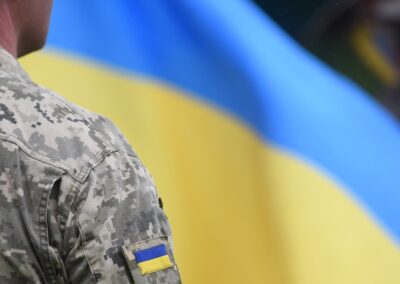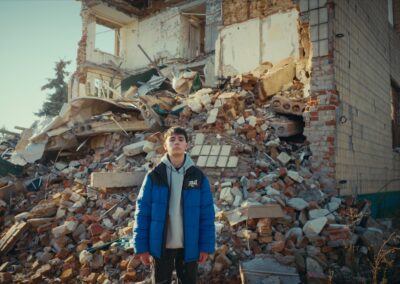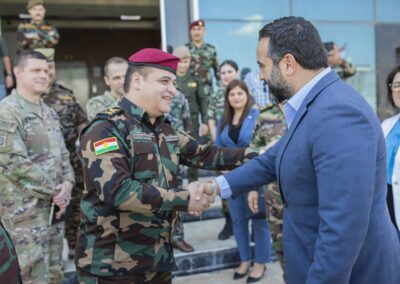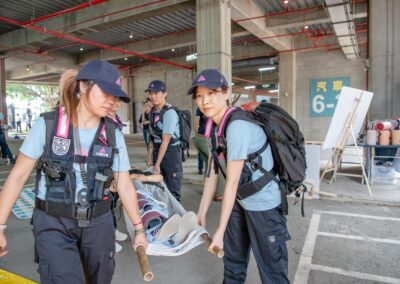Faces of Ukraine: Stories from everyday Ukrainians
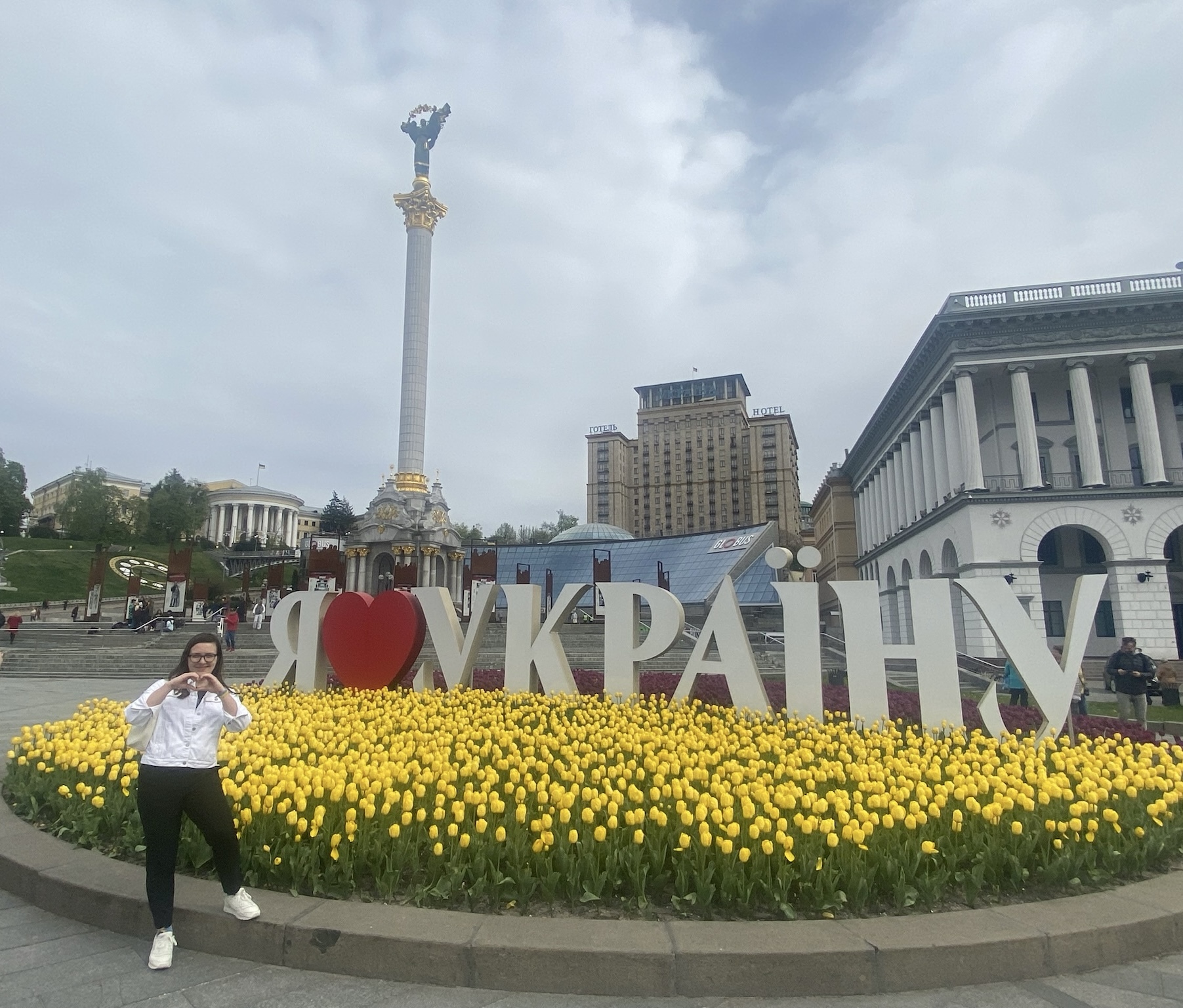
As we enter the third year of Russia’s full-scale invasion of Ukraine, Spirit of America is introducing a new video series, “Faces of Ukraine,” to amplify the voices of ordinary Ukrainians affected by the war. No matter their age or occupation, these Ukrainians are all fighting for the common cause of human rights, democracy, and the promise of a free and better life.
A preview is below. You can watch all of their stories here.
This series is personal to me, and I’d like to share my story, too.
I was born in the United States, but I spent my formative years in Ukraine in the early 2000s. I studied Ukrainian language and folklore music, including singing in the Ukrainian children’s national choir. My fondest childhood memories were summers spent with my grandparents at our family’s dacha (country home) on the outskirts of Kyiv. When I wasn’t swimming in the lake, I would help my Babusya (grandmother) tend the garden, as we Ukrainians are deeply connected to our native land. I watched my Dido (grandfather) build a swing for me in the yard, and grill shashlyk (Ukrainian kebab) on those warm summer nights. And I’d play with our dog, Dante, who would sometimes catch hedgehogs from the same garden I helped tend. The dacha always felt like my little slice of heaven – the safest and best place a kid could run free with creativity, imagination, and child-like wonder.
Since moving back to the US from Ukraine, it always felt as if half of my heart was left there. I longed to feel connected to my homeland and to my family still living there.
A legacy of resilience: Generations defined by strength
My maternal grandparents were born into WWII and genocidal famine. My Dido’s first memory, at just 5 years old, was sticking his tongue out at an occupying German Nazi. He was lucky to have lived to tell the tale. My Babusya was born into the third wave of Holodomor when millions of Ukrainians died from starvation due to Stalin’s man-made famine as a political tool to control and suppress Ukraine. At the height of the famine in June 1933, 28,000 Ukrainians died each day from starvation.
My Babusya told stories of how they cooked the leaves and herbs from trees, as there was absolutely no food to be found. She dug small, rotten potatoes out of the ground, hoping for better ones next time, and immediately hid that crop. All food was being taken by the Soviet, Russian leadership that occupied Ukraine at that time. Trains were packed with grain and exported. Russian military would come to your house and check to make sure you weren’t keeping anything for yourself. People lived in fear. If your neighbors knew you had food, you risked being outed to Soviet leadership and being subsequently tortured or killed. Alternatively, you risked being killed by your neighbor for the resource.
I never imagined that my grandparents, born into such turmoil and suffering, would meet the end of their lives in 2023, facing the horrors of war once again.
Surviving Russian occupation in the 21st century
On February 24, 2022, Russia’s full-scale invasion of Ukraine began. The following months were made up of sleepless nights spent calling my family, making sure they had water, food, and electricity – and that they were alive. This was accompanied by a crushing, never-ending feeling of hopelessness and fear for what the future held. I often wondered, if something happened to my family, who would call me to tell me? Would I even find out what happened to them?
Ukrainians know what it means when one says, “The Russians are coming.” This is not in vain, as we saw the horrific events that happened in Bucha, our neighboring town. When we first received word that Russian tanks were rolling in, my aunt hid her two little girls, my dear cousins who are like sisters to me, in a spare room. She boarded the windows with metal sheets and a mattress. This was done to prevent Russian infrared scanners from detecting kids in the house. And blocking the light from the windows at night prevented being identified as a residential area by Russian warplanes dropping aerial bombs above. While my cousins should have been in school learning, they spent their days hiding, listening to tanks rumbling and incessant loud booms. My aunt helped our neighbor hide his kids too. And our neighbor shared his root cellar with my family during the aerial attacks.
The first time my family had a chance to escape in March 2022 was through a civilian mobile convoy. Our neighbors joined that convoy, but at the last moment, my aunt had a bad feeling and decided to stay behind. Our neighbors, who generously shared their safe space with my family, were killed by Russians in that convoy. A drone captured the footage. I can’t imagine what I would have done if I had seen my aunt and cousins in that video.
When passion meets the mission
Before I joined Spirit of America, I interned at Ukrainian organizations, attended countless protests, studied international relations with a focus on Russian disinformation, and advocated wherever I could – telling anyone who would listen about my dear Ukraine.
Starting at Spirit of America in April 2022 was the first time I felt like I was a part of something bigger, making a real impact.
Since February 2022, we’ve delivered $55 million worth of nonlethal aid to support urgent, frontline efforts in the form of 9,296 bulletproof vests, 9,298 ballistic helmets, 21,015 first aid kits and advanced trauma kits, 33,000 ready-to-eat meals, 12 combat showers, 1,750 thermal imagers, 215+ drones, 155 vehicles, 287 refurbished trucks, and more.
Spirit of America also invests in educational programs such as combat preparedness training for soldiers to improve decision-making and lower the number of lives lost, as well as the UActive program, in partnership with the Ukrainian organization savED, for students in grades 8-11 who aspire to make a positive impact on their surroundings.
I am proud to be part of an organization providing such asymmetric impact at scale. For me, Spirit of America is not only a place to start my career, but also an organization that feeds my true passion to help Ukraine, which has been passed down to me generationally by freedom-loving Ukrainians.
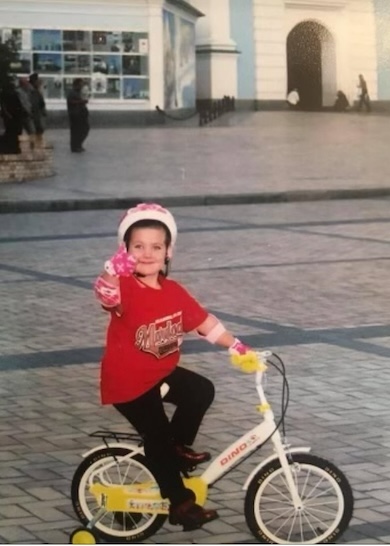
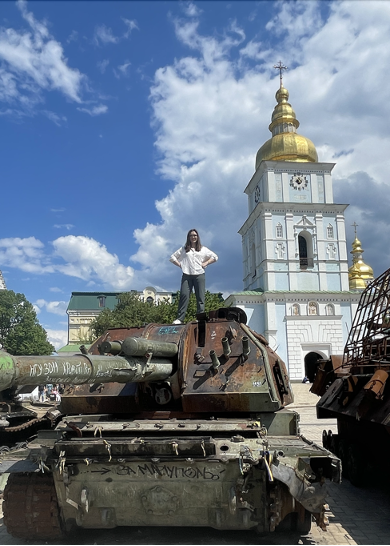
Overlooked history and modern implications
Ukraine has a deep history. It’s a young state hailing from ancient land, one of the first examples of democracy in Eastern Europe. Ukrainians wrote their first constitution in 1710 – 77 years before the United States. It has a rich culture, too, though for centuries Russia has appropriated Ukrainian culture, denied Ukraine’s existence, and killed Ukrainian civilians, artists, thought leaders, and politicians.
Ukrainians admire the United States and see it as a model of democracy. That is a threat to Russia, too. As the current war has evolved, Russia maintains that this isn’t just a war against Ukraine, but a war against the United States. Openly, on state-owned broadcasting channels, Russians are increasingly talking about how the United States must be obliterated and defeated.
Russia is betting on Americans remaining uninterested and uninformed about what’s happening in Ukraine. Indeed, American support for Ukraine appears to be dwindling, and additional US government funding is at risk. I worry that the majority of Westerners don’t realize that the normalcy of their everyday lives is also at risk. Soon, we could be the ones hearing loud booms and sirens all night, losing our loved ones, and praying that someone would help us.
Ending the cycle: United we can
My grandparents and their parents felt the evil, heavy hand of Russia’s destruction. My mother lived through the collapse of the Soviet Union, in times of political and economic disaster and uncertainty. My defining moments were during the Orange and Maidan revolutions. And now, my young cousins had to experience war firsthand as 11- and 13-year-olds, hoping Russians won’t find them.
Each generation of Ukrainians are primed to fight against the aggressor, terrorist state. It’s in our blood. However, I want it to end with this generation. I don’t want to keep losing young, bright Ukrainians senselessly to this war.
To be a Ukrainian is to be proud. To be resilient. To be strong, and sure of your identity. But this is not by choice. Instead, it is out of necessity. The second we stop standing up for ourselves, our values, and our freedom, we will be eliminated by a long-standing enemy that wants nothing more than to end our existence in a desperate search for power.
If Ukraine wins this war, Ukrainians continue to live and preserve our history. If Russia wins, there is no more Ukraine, and the rest of the West falls in line for the same fate.
Please don’t forget about Ukraine in this crucial time. As this street art I found during my 2023 field visit to Ukraine says:


Adriana Teluk joined Spirit of America in April 2022. A multilingual communicator, Adriana is a long-standing, active member of the Ukrainian-American community in Washington D.C., with familial ties to Ukraine. Having lived there as a child, it is imperative to Adriana to now be a part of the effort to help Ukraine. Prior to joining Spirit of America, Adriana worked with several Ukrainian organizations to promote advocacy and development.

